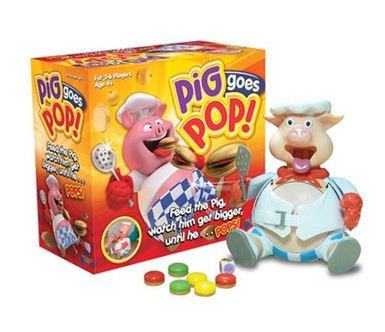Pediatric Therapy Corner: Turn Taking and Waiting Games
All material Copyright © April 2011 The Down Syndrome Centre
Reprinted with the express permission of the The Down Syndrome Centre as originally published on their website.
By: Marinet vanVuren

Turn-taking is an important social skill to learn. Communication involves listening, waiting and taking turns. Two people having a conversation take turns to speak, gesture and make eye contact. If two people talk at once, communication breaks down. Many young children find it difficult to learn to wait, share and take turns. A child with a communication difficulty may find it particularly hard to accept the rules of turn-taking and sharing.
Turn taking begins very early, long before children learn to talk. Parents respond to sounds which their baby makes, and the baby repeats the sound again, resulting in a ‘conversation’ where the two speakers listen to each other and take their turn. Turn taking skills should be encouraged early on, to help develop an understanding of the rules of conversational turn-taking as well as promoting good standards of behaviour.
The rules of turn taking
- To start with, work on turn-taking when you are alone with your child. It is much harder to learn to share with two or three brothers or sisters.
- To ensure that your child does take turns, be in control of the situation by keeping hold of the equipment being used.
- Demonstrate the activity first so that your child understands what is required.
- Use the appropriate signed or spoken language for turn-taking, e.g. My turn/Your turn.
- If your child is reluctant to take turns, let him have two turns for every one turn that you have.
- If your child is still unwilling to take turns, remove the toy altogether and come back to it later when he is more willing to co-operate.
(Guidelines from: Early Communication skills by Charlotte Lynch and Julia Kidd (1999))
What to do to encourage turn taking:
You will need two different toys, for example, a rattle and a squeaky toy. Give your child one toy and let him play with it for a while. Then offer your child the other toy and let him have it only when the first one is returned. This activity helps your child to learn how to give and take.
Encourage turn taking and good sharing behaviour on a daily basis:
- Taking turns to stir cake mixture.
- Take turns feeding dolly/teddy with one spoon.
- Take turns filling the dog’s water bowl with a small cup.
- Take turns drying your hair with a hairdryer.
- Taking turns on the swing.
- Take turns blowing bubbles.
- Taking turns to water the garden with a small watering can.
- Taking turns to brush your hair and wash your face.
- Take turns scribbling with one crayon.
- Taking turns to clap hands.
- Take turns putting the dirty washing in the washing machine.
- Take turns getting the dinner ready by putting carrots / potatoes one by one into a pot.
- Take turns to roll the ball and knock down the skittles.
- Sit opposite your child and throw balls or bean bags to each other.
- Take turns to roll cars towards each other.
- Take turns turning the pages in a book.
- Take turns to add another beaker or brick to a tower.
Other shop-bought turn taking games
- Pig goes Pop
- Pop up Pirate
- Hanging Monkeys
- Tumbling Monkeys
- Buggy Tree
- Buckaroo
- Operation
- Ker-Plunk
- Don’t drop the Acorns
Featured Organization: The Down Syndrome Centre
We thank the Down Syndrome Centre for allowing us to reprint their copyrighted article. For more information about this organization please visit The Down Syndrome Centre
Marinet vanVuren is a South African born Speech and Language Therapist. For the past seven years she has worked with a range of Irish disability organisations including Enable Ireland, St Michael’s House and the Children’s Sunshine Home. She recently set up her own private speech and language therapy practice where she sees children of all disabilities with various speech, language and feeding difficulties.
dup 2119
PediaStaff is Hiring!
All JobsPediaStaff hires pediatric and school-based professionals nationwide for contract assignments of 2 to 12 months. We also help clinics, hospitals, schools, and home health agencies to find and hire these professionals directly. We work with Speech-Language Pathologists, Occupational and Physical Therapists, School Psychologists, and others in pediatric therapy and education.
